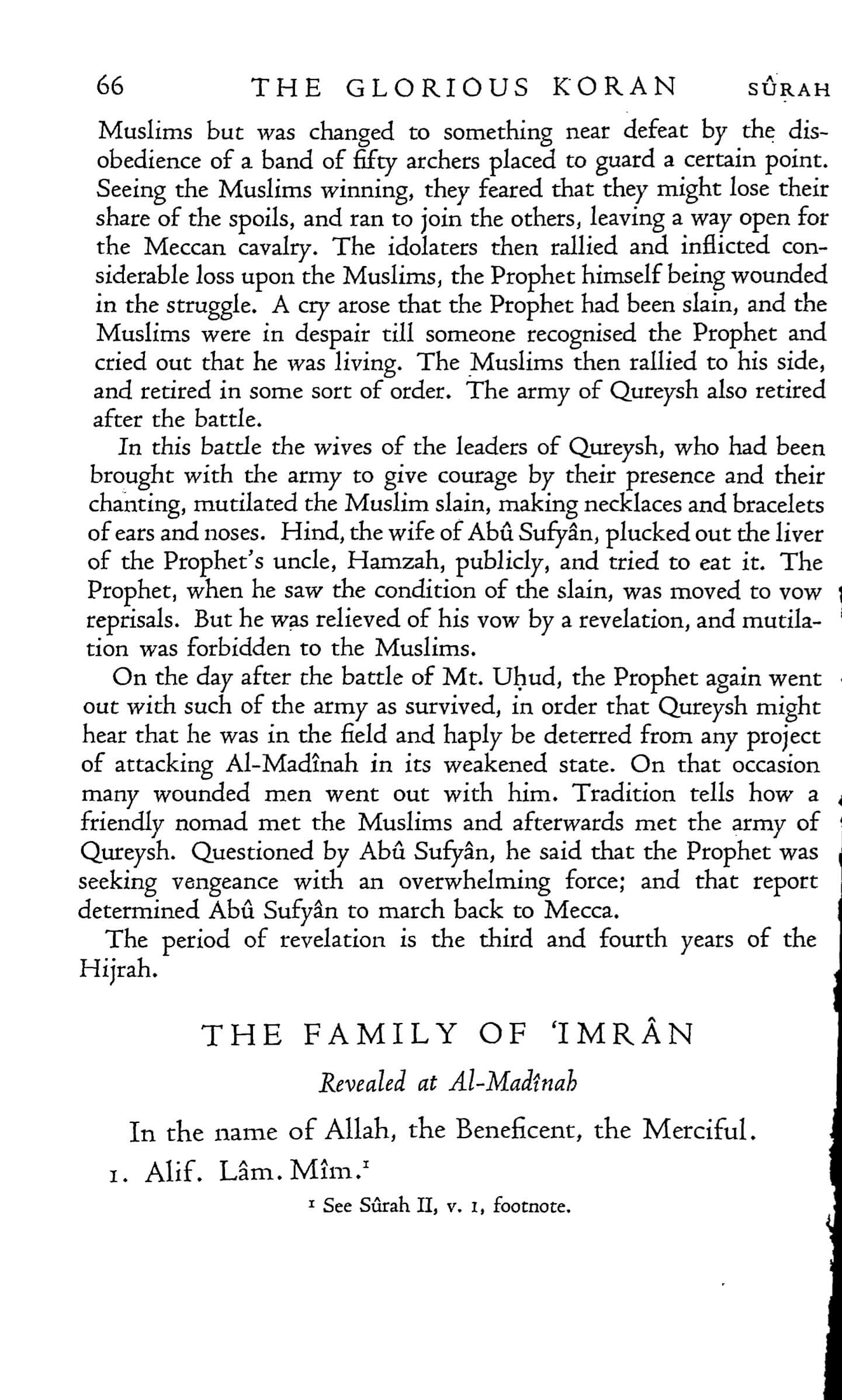Marmaduke Pickthall, The Meaning of The Glorious Koran. An Explanatory Translation (1930)
Muslims but was changed to something near defeat by the disobedience of a band of fifty archers placed to guard a certain point. Seeing the Muslims winning, they feared that they might lose their share of the spoils, and ran to join the others, leaving a way open for the Meccan cavalry. The idolaters then rallied and inflicted considerable loss upon the Muslims, the Prophet himself being wounded in the struggle. A cry arose that the Prophet had been slain, and the Muslims were in despair till someone recognised the Prophet and cried out that he was living. The Muslims then rallied to his side, and retired in some sort of order. The army of Qureysh also retired after the battle.
In this battle the wives of the leaders of Qureysh, who had been brought with the army to give courage by their presence and their chanting, mutilated the Muslim slain, making necklaces and bracelets of ears and noses. Hind, the wife of Abû Sufyân, plucked out the liver of the Prophet’s uncle, Hamzah, publicly, and tried to eat it. The Prophet, when he saw the condition of the slain, was moved to vow reprisals. But he was relieved of his vow by a revelation, and mutilation was forbidden to the Muslims.
On the day after the battle of Mt. Uḥud, the Prophet again went out with such of the army as survived, in order that Qureysh might hear that he was in the field and haply be deterred from any project of attacking Al-Madînah in its weakened state. On that occasion many wounded men went out with him. Tradition tells how a friendly nomad met the Muslims and afterwards met the army of Qureysh. Questioned by Abû Sufyân, he said that the Prophet was seeking vengeance with an overwhelming force; and that report determined Abû Sufyân to march back to Mecca.
The period of revelation is the third and fourth years of the Hijrah.
The Family of ’Imrân
1. Alif. Lâm. Mîm.1
1 See Sûrah II, v. 1, footnote.
